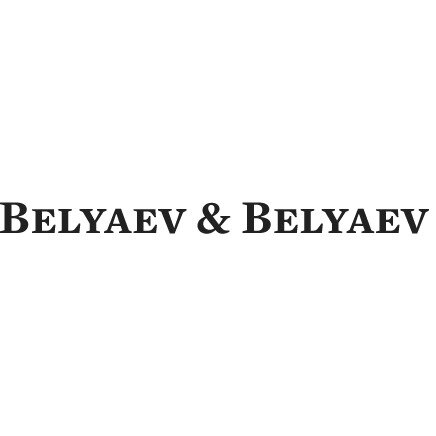Best Hiring & Firing Lawyers in Latvia
Share your needs with us, get contacted by law firms.
Free. Takes 2 min.
Or refine your search by selecting a city:
List of the best lawyers in Latvia
About Hiring & Firing Law in Latvia
Hiring and firing in Latvia are governed by a combination of national labor laws and EU regulations, creating a framework intended to balance the rights and responsibilities of employers and employees. The cornerstone of employment law in Latvia is the Labour Law, which outlines procedures and requirements regarding employment contracts, termination, employer and employee rights, and related issues. These laws are designed to protect employees from unfair dismissal and ensure that hiring practices are conducted fairly and equitably.
Why You May Need a Lawyer
While straightforward matters can often be handled independently, several situations may necessitate legal guidance from a lawyer specializing in employment law. Some common situations include:
- Disputes regarding the termination of employment contracts.
- Allegations of wrongful or unfair dismissal.
- Issues related to discrimination or harassment in the workplace.
- Understanding complex employment contracts and agreements.
- Employer non-compliance with statutory employment rights or benefits.
- Negotiating severance packages.
- Representing employers or employees in labor disputes and hearings.
Local Laws Overview
Understanding local laws is crucial for navigating hiring and firing practices in Latvia. Key aspects include:
- Employment Contracts: Contracts must be in writing, detailing job duties, work hours, salary, and other essential terms. Temporary contracts have specific regulations.
- Termination Conditions: Employers need a lawful basis to terminate contracts, with statutory notice periods and severance pay depending on the length of service.
- Probation Periods: The law allows employers to set a probation period, typically not exceeding three months, enabling assessment of the employee's suitability for the role.
- Employee Rights: Employees are entitled to a safe work environment, fair pay, rest periods, and protection against discrimination.
- Workplace Disputes: Employees and employers can take disputes to the Latvian Labour Inspectorate or resolve them through the courts.
Frequently Asked Questions
What constitutes unfair dismissal in Latvia?
Unfair dismissal occurs when an employer terminates an employee without lawful grounds or fails to follow the proper legal procedures. Employees can challenge such dismissals through legal action.
How much notice is required for terminating an employment contract?
The Labour Law specifies notice periods based on the length of employment, typically ranging from 10 days to one month. Specific circumstances may dictate different timelines.
Is severance pay mandatory in all dismissal cases?
Severance pay is typically required in cases of dismissal due to business operations changes or economic reasons but not in instances of disciplinary termination.
Can an employer terminate a contract during the probation period?
Yes, an employer can terminate an employment contract during the probation period without justification, providing statutory notice is given.
Are there regulations on non-compete clauses in employment contracts?
Yes, such clauses must be reasonable in duration and geographic scope to be enforceable, and the law may require compensation for the employee during the non-compete period.
What rights do employees have during layoffs?
Employees are entitled to statutory notice and potential severance pay. Employers must follow fair procedures and explain the rationale behind any layoffs.
How can an employee file a complaint about workplace discrimination?
Employees can file a complaint with the Latvian Labour Inspectorate or initiate legal proceedings against the employer for discrimination cases.
Are part-time and temporary workers entitled to the same rights as full-time employees?
Part-time and temporary workers are entitled to basic employment rights proportionate to their working conditions, similar to those of full-time employees.
How does the law regulate overtime work?
Overtime work must be agreed upon in the employment contract, and employees are entitled to additional pay or compensatory time off, as stipulated by the law.
Can an employer change the terms of employment unilaterally?
Generally, employment terms cannot be changed unilaterally. Employers must negotiate and obtain consent from the employee for any changes to employment terms.
Additional Resources
For more information and assistance regarding hiring and firing processes in Latvia, consider consulting the following resources:
- Latvian Labour Inspectorate: Provides guidance on employee and employer rights and obligations.
- Latvian Ministry of Welfare: Offers resources on employment policies and regulations.
- Trade Unions: Various unions offer support and advice for employees navigating employment issues.
- Professional Legal Advisors: Specialized employment lawyers provide tailored advice and represent clients in disputes.
Next Steps
If you require legal assistance in hiring and firing, consider the following steps:
- Identify the specific legal issue or question you need resolved.
- Gather all relevant documents, including employment contracts, notices, and correspondence.
- Consult with a professional legal advisor specializing in Latvian employment law to discuss your situation.
- Consider mediation through local labor dispute resolution mechanisms if suitable for your case.
- If necessary, be prepared to engage in legal proceedings to protect your rights or resolve disputes.
Lawzana helps you find the best lawyers and law firms in Latvia through a curated and pre-screened list of qualified legal professionals. Our platform offers rankings and detailed profiles of attorneys and law firms, allowing you to compare based on practice areas, including Hiring & Firing, experience, and client feedback.
Each profile includes a description of the firm's areas of practice, client reviews, team members and partners, year of establishment, spoken languages, office locations, contact information, social media presence, and any published articles or resources. Most firms on our platform speak English and are experienced in both local and international legal matters.
Get a quote from top-rated law firms in Latvia — quickly, securely, and without unnecessary hassle.
Disclaimer:
The information provided on this page is for general informational purposes only and does not constitute legal advice. While we strive to ensure the accuracy and relevance of the content, legal information may change over time, and interpretations of the law can vary. You should always consult with a qualified legal professional for advice specific to your situation.
We disclaim all liability for actions taken or not taken based on the content of this page. If you believe any information is incorrect or outdated, please contact us, and we will review and update it where appropriate.
Browse hiring & firing law firms by city in Latvia
Refine your search by selecting a city.












